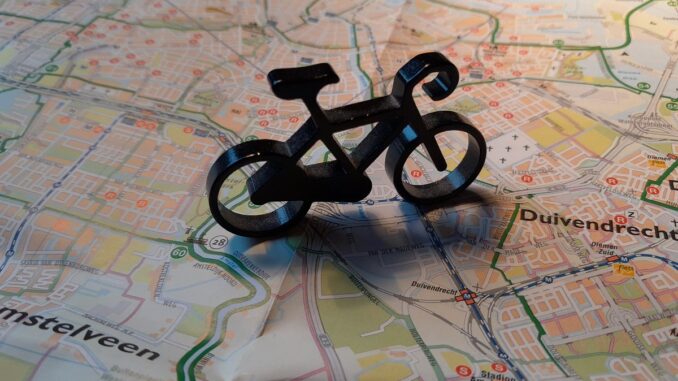
Cycling and science: the best from the Cycling Research Board
Some of the most interesting presentations (see links below) were selected from the Cycling Research Board, an international congress for cycling scientists, which took place in Amsterdam in October 2022. In addition, discussions were held about how we can improve the exchange of knowledge between practice and science in the future.
The presentations in brief
During the first part of the café, presentations were given by academics who performed at the Cycling Research Board (CRB) conference last year – see all abstracts of this conference. Mario Boot (University of Twente) talked about his ‘Smart Connected Bicycles Project’ in this context. He introduced his team and discussed the six different levels (0-5) at which the bicycle can be connected to its environment. The concept of ‘smart bikes’ still represents unexplored territory. The ongoing research focuses on the impact of the new technologies, that is, on the internal, subjective and emotional response of cyclists during their interactions with smart bikes.
Clarissa Livingston (ETH Zurich, Switzerland) explained the case of a so-called e-Bike City (presentation unfortunately not available). How should cycling planning and policy be developed in Switzerland so that cities become suitable for large-scale use of e-bikes and associated cycling infrastructure? The result will ultimately be a kind of handbook for designers and policy makers. The intention is that in time cities outside Switzerland will also be selected as research cases.
Eileen Hogan (University College Cork, Ireland) took us through the research into cycling promotion in Cork in Cork. This city is booming economically, but still very focused on the car in terms of mobility. Hogan laid out the painstaking but persistent way of changing this in favour of cycling.
Michael Tahmoressi (University of Minnesota, the College of Liberal Arts, Minneapolis, MN, USA) reported about his (partly planned) research into the accessibility of cycling for non-western immigrants in the Netherlands. He tries to find out how the built environment and associated cycling infrastructure are expressed in the cycling behaviour of non-Western immigrants, for whom the Dutch cycling culture is by no means a foregone conclusion.
Finally, Rebecca Mayers and Bran Doucet (University of Waterloo, ON, Canada) elaborate on how place and identity contextualize our cycling experiences. Their research is based on fieldwork in which observers systematically map the behaviour of cyclists. Their research question: how can the cycling infrastructure, in addition to prioritizing cycling, also be used to provide safe and fair experiences for those who do not cycle?
The second part of the café was devoted to the question of how the Dutch cycling community should deal with its knowledge infrastructure in the coming years and the role of internationally oriented science (universities and colleges) in this.
Lucas Harms (Dutch Cycling Embassy) gave a brief overview of the international work of his organisation. And he showed that through this work many contacts have already been made with universities in the Netherlands, but especially also abroad.
Rob van der Bijl (Cycling Community) looked back at the work over the past ten years, which once started as a ‘community of practice’. The knowledge infrastructure has now been expanded and the intention is to house the Cycling Community permanently at the DCE.
